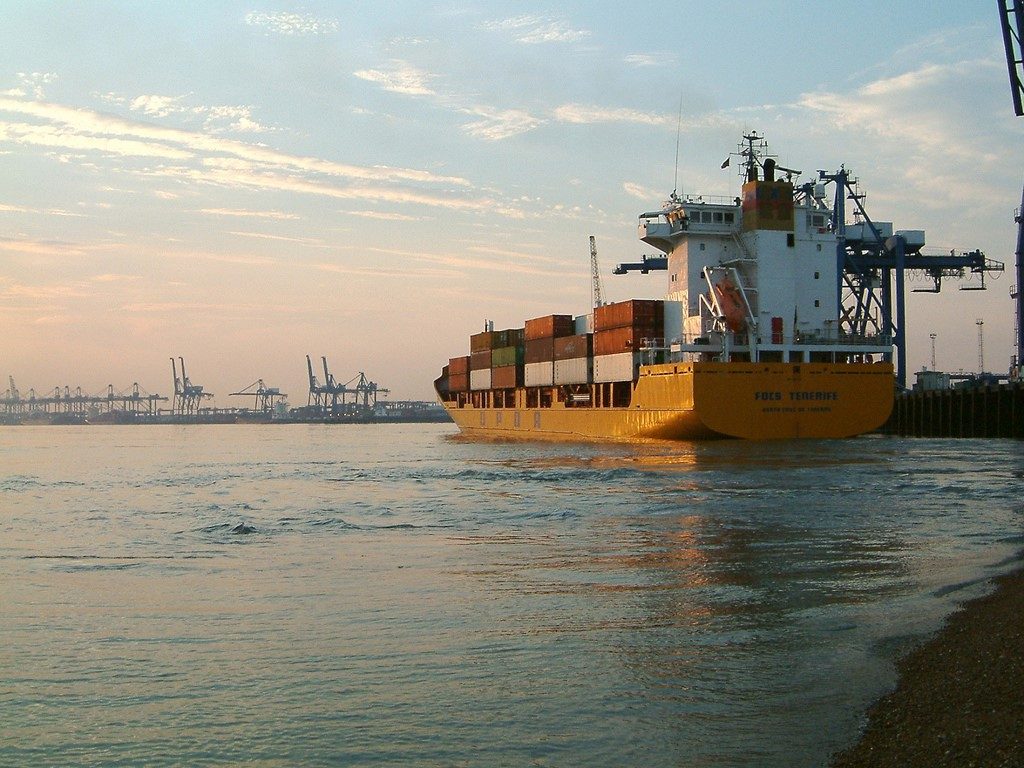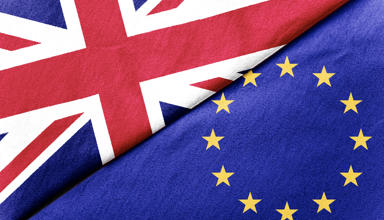Background
One of the key issues to emerge from the recent Brexit negotiations between the UK and the EU is what sort of customs arrangement the UK will have with the EU once it leaves. As set out in the Assembly’s External Affairs and Additional Legislation Committee report on Wales’ Future Relationship with the EU (PDG 9727KB), the issue of customs is one of great concern to many different sectors of the Welsh economy.
On 2 March 2018, UK Prime Minister Theresa May stated in her Mansion House Speech that “the UK has been clear it is leaving the Customs Union”.
On 30 April, the Assembly’s External Affairs and Additional Legislation Committee held a scrutiny session with the UK Government’s Parliamentary Under-Secretary of State at the Department for Exiting the European Union, Mr Robin Walker MP. During the session, Mr Walker reiterated the UK Government’s position:
The position of the UK Government is very clear, that we are leaving the EU customs union. We do then of course seek to negotiate a new arrangement between the UK and the EU that will allow for frictionless and tariff-free market access, and I think it's welcome that the EU's negotiating guidelines include that aspiration of no tariff barriers and frictionless arrangements with regard to the border.
UK Government’s defeat in House of Lords
On 18 April, the first day of Report Stage of the European Union (Withdrawal) Bill in the House of Lords, members debated a cross-bench amendment relating to the EU customs union. The amendment went to a vote, with Members voting 348 to 225 in favour of requiring UK Ministers to make a statement outlining the steps taken during Article 50 negotiations to enable the UK to continue participating in a customs union with the EU. UK Government’s response.
In response to the vote in the House of Lords, the UK Government stated that:
This amendment does not commit the UK to remaining in a customs union with the EU, it requires us to make a statement in Parliament explaining the steps we've taken.
Our policy on this subject is very clear. We are leaving the customs union and will establish a new and ambitious customs arrangement with the EU while forging new trade relationships with our partners around the world.
House of Commons debate
Following the UK Government’s defeat in the House of Lords, a cross-party group of Select Committee Chairs introduced a House of Commons motion stating that establishing a customs union with the EU should be a key objective in the Brexit talks. The motion was debated by MPs in the House of Commons on 26 April. While this motion was passed by the House, it was non-binding, meaning it does not commit the UK Government to any action.
It is likely that there will be further debate on this subject within the House of Commons later this year, following pro-customs union amendments tabled to the Trade Bill (PDF 170KB) and Taxation (Cross-border Trade) Bill (PDF 207KB). This will potentially give MPs a chance to vote on the issue when these Bills enter Report Stage.
EU Commission’s position and the question of the Irish border
The Prime Minister stated in her Mansion House Speech that:
Our departure from the EU causes very particular challenges for Northern Ireland, and for Ireland… We have been clear all along that we don’t want to go back to a hard border in Ireland. We have ruled out any physical infrastructure at the border, or any related checks and controls.
However, there are still uncertainties as to how a hard border between Northern Ireland and the Republic of Ireland would be avoided if the UK left the customs union. UK and EU negotiators recently held four weeks of talks on this subject, concluding on 18 April, but failed to reach a conclusion. The issue of the Northern Ireland and Ireland border is of particular importance to Wales because of the high volumes of trade between Welsh and Irish ports. In its inquiry into the implications of Brexit for Welsh Ports (PDF 2996KB), the Assembly’s External Affairs and Additional Legislation Committee concluded:
We are concerned that a soft border between Northern Ireland and the Republic, and a hard maritime border between Wales and the Republic of Ireland, could severely disadvantage Welsh ports and result in a loss of competitiveness leading to a displacement of traffic from Welsh ports – principally Holyhead – to ports in England and Scotland, via Northern Ireland.
The UK Government has put forward two post-Brexit customs proposals, the first of which is known as the “new customs partnership”. This proposal would allow Britain to maintain its own system of tariffs but act as a collector of EU customs duties on goods that enter the UK bound for an EU country. The second proposal, known as the “highly streamlined customs arrangement”, involves using technological solutions to lower customs barriers.
Appearing before the House of Commons Exiting the European Union committee on 25 April, the UK Government’s Secretary of State for Exciting the European Union UK, David Davis MP, confirmed that the European Commission has “criticised various elements of each of the two options talked about”, but said that this is only the Commission’s “opening position” in ongoing negotiations.
Welsh Government’s Position
On 2 February 2018, the Welsh Government published the report Trade Policy: The Issues for Wales (PDF 1714KB) part of a series of Brexit-related policy position papers. This report outlines the Welsh Government’s position:
We remain to be convinced that leaving a customs union with the EU is in our interests, at least for the foreseeable future. If the UK Government pursues its policy of leaving the Single Market and the Customs Union in favour of a wholly independent trade policy this will risk the imposition of non-tariff barriers and, potentially, tariffs, which could only be damaging to business in Wales and the UK […] We believe at this stage that remaining part of the EU Customs Union, including for primary agricultural and fisheries products, remains the best position for Welsh and UK business.
During First Minister’s Questions on 8 May 2018, First Minister Carwyn Jones stated:
It is hugely important that the UK remains within the customs union. Trade policy is not devolved—that is reality. But [the Welsh Government] have ensured that we have a voice to make sure that the voice of Wales is heard.
This issue will continue to be a key feature of the negotiations between the UK and the EU over the coming months. The next key date in the negotiations will be the June European Council where the Heads of State and Government for the EU will meet to discuss progress on the negotiations.
The Research Service acknowledges the parliamentary fellowship provided to Alastair Grey by the Economic and Social Research Council (ESRC), which enabled this blog to be completed.
Article by Alastair Grey, National Assembly for Wales Research Service
Image from Flickr by Martin Pettitt. Licensed under Creative Commons.







